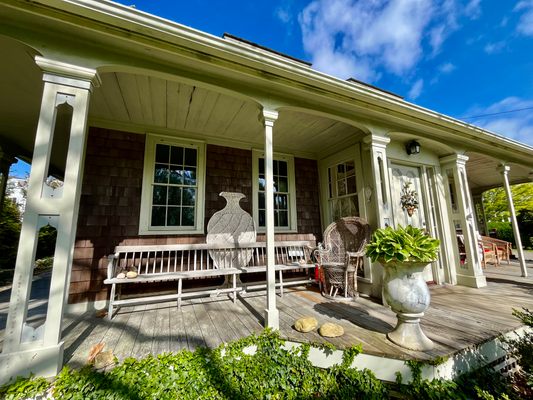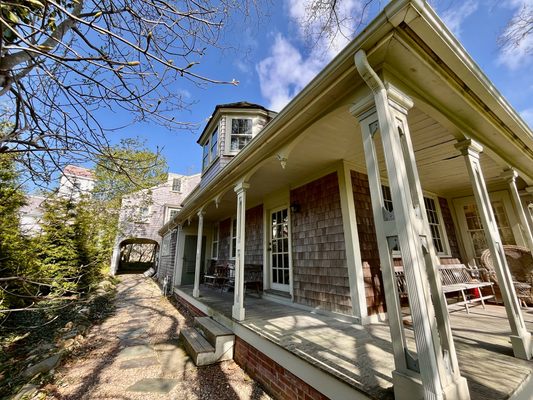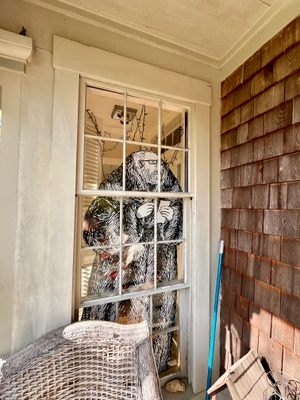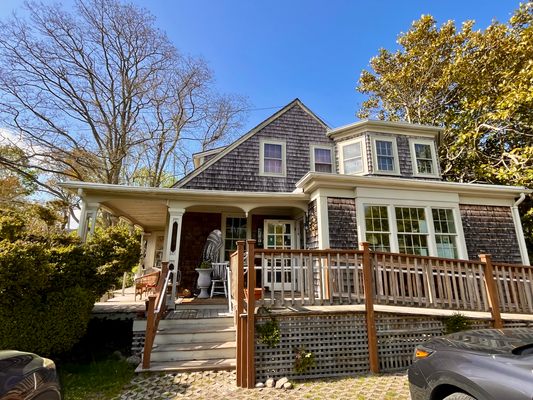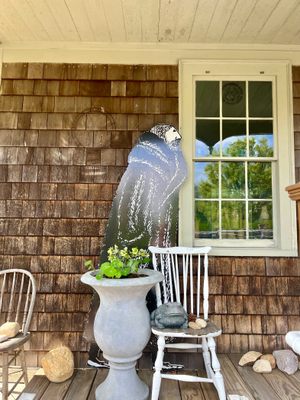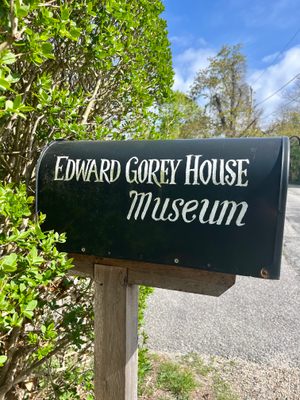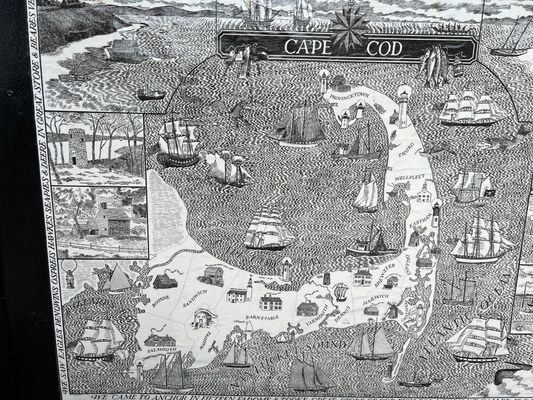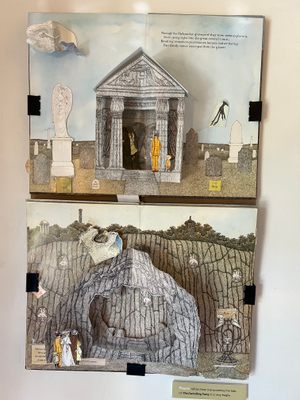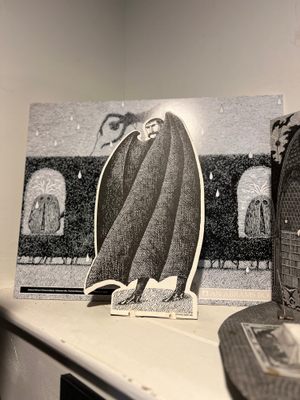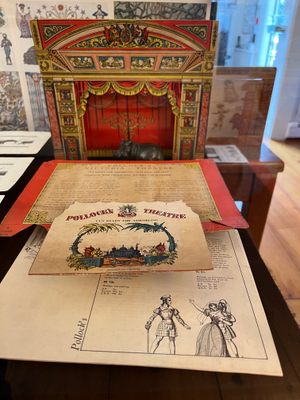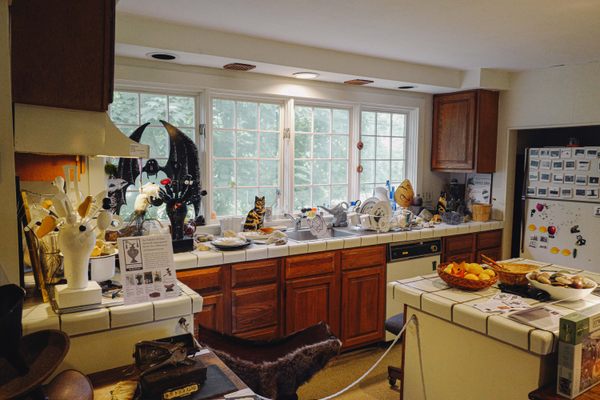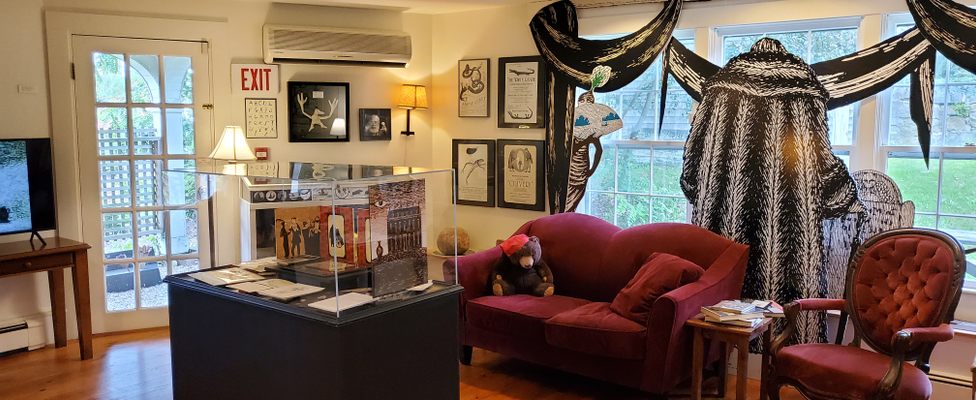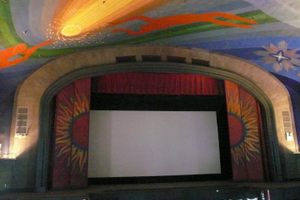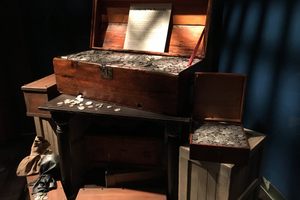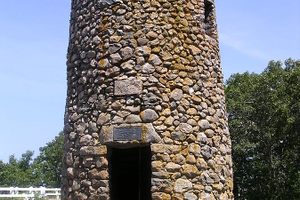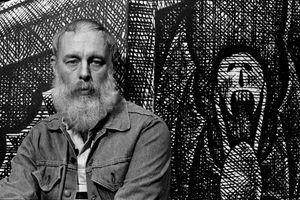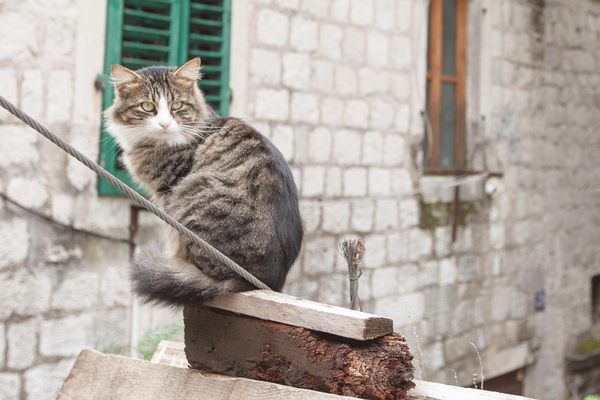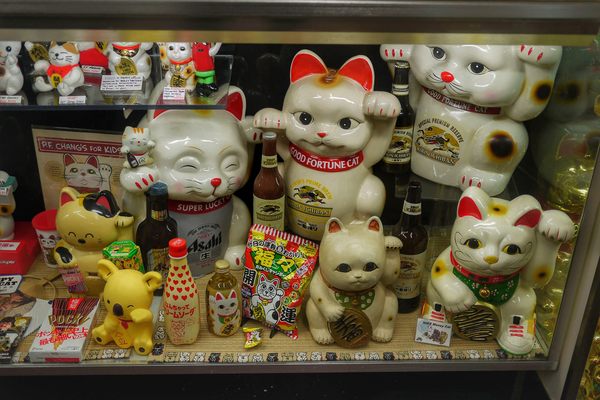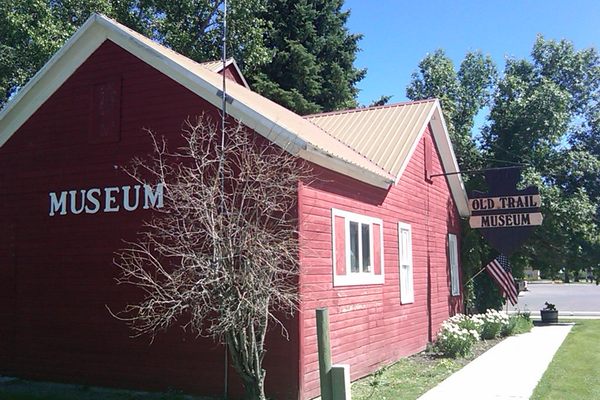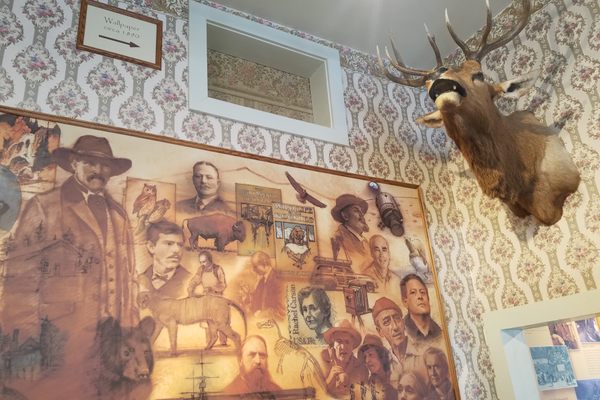About
When the prolific illustrator and author Edward Gorey died in 2000, the floors of his home sagged under the weight of 25,000 books, several cats, and assorted collections of eclectic items gathered over the course of years at Saturday flea market outings, as well as 75 unpublished manuscripts. Lucky for the world, rather than parceling these all out, the illustrator's home and collection were converted into a museum dedicated to his life and works.
Gorey was born in Chicago in 1925 to an artistic family, and by the time he enrolled at Harvard to study French in the 1950s, he was already an established dandy. According to the Harvard Magazine, "He arrived sporting a full-length sheepskin-lined coat, sneakers, and thick rings on his long fingers. His hair was combed forward, Roman style. A typical freshman he was not."
He cultivated his eccentrically artistic lifestyle during his university years, establishing his trademark style of raccoon fur overcoats worn with tennis shoes, and a habit of attending every performance of the New York City Ballet (which he did from 1957 to 1982). His first book The Unstrung Harp ("Or, 'Mr Earbrass Writes a Novel'"), about the horrors of the writing life, was published in 1953. After that, he published more than 100 more titles, usually in small hardback editions. His distinctive scratchy style of illustration and macabre humor lead to a cult following by the late '60s.
A very private person, Gorey was publicly perceived as cold, gothic, and eccentric. The back cover of his 1997 book The Haunted Tea-Cozy ("A Dispirited and Distasteful Diversion for Christmas") quotes the New Yorker: "Many of Edward Gorey's most fervent devotees think he's (a) English and (b) dead. Actually, he has never so much as visited either place." In fact, his friends (who knew him as Ted) describe him as chatty and personable, which comes across immediately in documentary footage shot in 1996.
Gorey moved to Cape Cod in 1986 following the death of George Balanchine, the legendary choreographer of the New York City Ballet, and then into the 1820 house he called the Elephant House, now known as the Edward Gorey House, where he lived and worked for the rest of his life. He filled his home with books and his unusual collections, and lived with as many as six cats at a time, whom he referred fondly to as his "people." It was for their sake that he eventually dispensed with his habit of wearing fur coats. He worked in a tiny room under images by Matisse and Goya, and "an Indian sculpture of a tiger devouring a missionary" (almost certainly one of the sculptures made after Tipu's Tiger), always writing his surreal stories first, illustrating with a slow and precise style, after.
In 1994, he was diagnosed with diabetes and prostate cancer, but in the end, he died of a heart attack at age 75 on April 15, 2000. A portion of his ashes were held in an urn pending the death of his last two cats, so they may be buried together in the yard of the house. A documentary was made about his life, shot between 1996 and 2000.
The museum supports Gorey's interest in animal welfare (he left his estate to three animal welfare groups in his will), as well as displays objects related to his life. The house has been cleared and rearranged since his death. Pictures taken by Kevin McDermott in the week after his death show piles of books and objects-on-objects. Most of his book collection was removed to make way for display items. Some things have been left as is, such as his cat-shredded divan, and his raccoon coat is in a display case.
Forming a macabre scavenger hunt, there are are scenes from The Gashlycrumb Tinies, one of his most famous morbid books recounting the grisly deaths of 26 youngsters in 13 rhyming couplets, hidden throughout the museum. According to some accounts, there is a door at the back of a closet that leads to a secret room that once held his collection of children's books.
Related Tags
Know Before You Go
The Edward Gorey House is located on Cape Cod, off Route 6A on the Yarmouthport Common. Plan your visit in advance. They're only open Thursday through Saturday from 11 a.m. to 4 p.m. and Sunday from noon to 4 p.m. They're closed Monday, Tuesday, and Wednesday.
Community Contributors
Added By
Published
January 10, 2010
Sources
- A visit to the Gorey House: http://goreyography.com/south/south.htm
- Extensive photo set: http://www.flickr.com/photos/mychatham/sets/72157604189279962/
- http://www.edwardgoreyfilm.com/
- http://www.edwardgoreyhouse.org/
- http://www.harvardmagazine.com/2007/03/edward-gorey.html
- Obituary http://www.guardian.co.uk/news/2000/apr/20/guardianobituaries.books
- http://www.arrive-digital.com/arrive/20090102/?pg=26&pm=2&u1=friend (second page)
- http://en.wikipedia.org/wiki/Edward_Gorey
- http://en.wikipedia.org/wiki/Elephant_House
- http://www.yelp.com/biz/edward-gorey-house-yarmouth-port
- Photographs of the Elephant House taken the weekend after his death, by Kevin McDermott (click on navigation to the Elephant House)
- http://www.kevinmcdermott.com/

